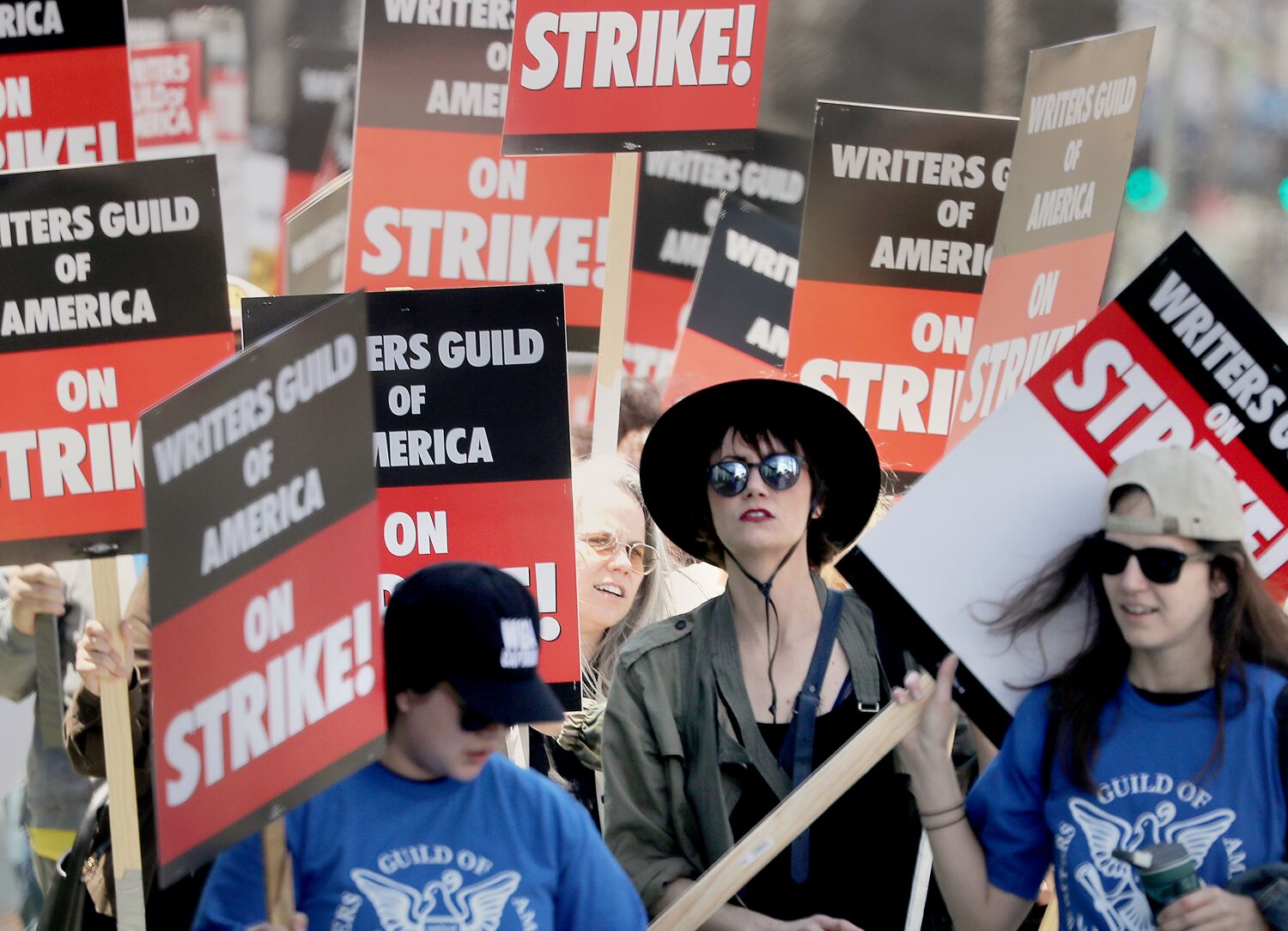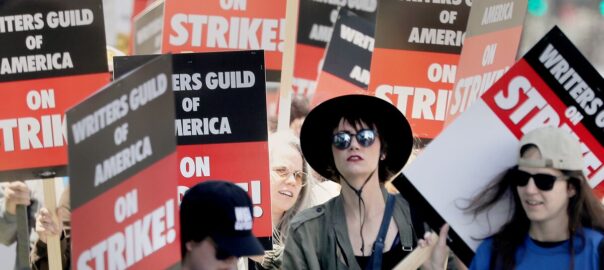[ad_1]

The Writers Guild of America’s strike against the major media companies has turned into a marathon.
The labor action hits the 100-day mark on Wednesday — a milestone that matches the duration of the bitter slog 15 years ago, when screenwriters demanded compensation for shows distributed online. Back then, the internet was just a speck of the media companies’ businesses. Now, the two sides are struggling over the fallout of the rapid shift to streaming.
And there’s no end in sight to the standoff that deepened last month after the actors’ union joined writers on picket lines.
Some observers expect Hollywood’s hot labor summer to stretch well into the fall, disrupting the new season on broadcast TV, dashing movie marketing campaigns, possibly prompting furloughs and creating more economic fallout for Los Angeles and its signature industry.
Representatives of the WGA and the studios remain far apart on issues that are pivotal to writers. There’s also a palpable lack of trust between the sides, reflected by heated rhetoric on picket lines.
Last Friday, WGA chief negotiator Ellen Stutzman and WGA West General Counsel Tony Segall met with AMPTP negotiator Carol Lombardini to see if there was an opening to restart talks that have been stalled since May 1.
But even that modest goal proved elusive. The highly anticipated meeting at Alliance for Motion Picture and Television Producers headquarters in Sherman Oaks went poorly, according to people on both sides of the dispute who were not authorized to speak publicly. The alliance bargains on behalf of Walt Disney, Warner Bros. Discovery, Netflix, Amazon and other media companies and streamers.
Tensions between the sides resurfaced on Tuesday when the WGA released a statement by negotiating committee members Chris Keyser and David Goodman that blamed the studios for the logjam in bargaining.
“The refusal to take writers’ reasonable proposals seriously has caused the WGA strike to last 100 days and counting; it serves only as a milestone of shame for the AMPTP,” Keyser and Goodman said. “They and their member studios are wholly responsible for the over three-month shutdown of the industry and the pain it has caused workers and all others whose livelihoods depends on this business.”
A representative of the AMPTP did not immediately respond to The Times’ request for comment.
The WGA has argued that it has become increasingly difficult to earn a living wage in Hollywood, in large part because fewer TV episodes are made for a streaming series compared to a traditional network TV show. For writers, the shift means less work and smaller paychecks.
To alleviate the problem, the 11,500-member union has demanded minimum staffing requirements for writers’ rooms, increased compensation based on the success of streaming shows and limitations on the use of artificial intelligence.
The studios have said they are prepared to discuss AI but not minimum staffing requirements. They’ve also drawn a line on revenue sharing for streaming shows — leading to the standoff.
People close to the negotiations, who were not authorized to comment, described AMPTP representatives as frustrated last week by the WGA’s request to add new demands. One such request was to extend health benefits for members. Another provision would allow writers to honor picket lines of their sister guilds, such as SAG-AFTRA, which began its strike in mid-July.
Such an agreement would mean no writing would occur until the AMPTP settled both strikes that are currently crippling Hollywood.
“The cost of settling the WGA and SAG-AFTRA strikes is far less than the damage their intractability has caused,” Keyser and Goodman said in their statement. “Ultimately, the studios have no choice but to make a fair deal. Until then, we remain resolved and united.”
After Friday’s meeting, Lombardini said she would take the issues raised back to the studio heads whom she represents. There is some hope in the industry that the AMPTP will try again to restart the talks.
“I think all of us in in this business are very keen to figure out a solution as quickly as possible,” Warner Bros. Discovery Chief Executive David Zaslav told Wall Street analysts in an earnings call last week.
The three-month strike already has been bruising for the economy of Los Angeles, which is grappling with a hotel workers strike and a one-day work stoppage Tuesday by more than 7,000 city workers. Members of the Service Employees International Union Local 721, which includes lifeguards, city trash haulers and animal shelter assistants, protested conditions and what it called stalled bargaining.
The twin Hollywood strikes have been devastating for Hollywood crew members and businesses that support the film industry. Economists have estimated the financial toll, including lost compensation, at more than $3 billion. But, they say, the true cost will largely depend on the length of the work stoppage.
The current standoff between the WGA and studios has spanned 14 weeks — eclipsing the 96-day writers’ strike in 1981, which resulted in a landmark deal that guaranteed writers a share of producer revenues from pay TV and home videocassette sales.
The longest Hollywood writers strike was the 1988 dispute, which stretched 22 weeks as the two sides tussled over residual payments for TV shows broadcast in foreign countries.
Staff writers Scott Wilson and Stephen Battaglio contributed to this report.
[ad_2]
Source link
